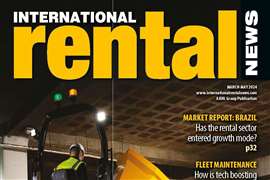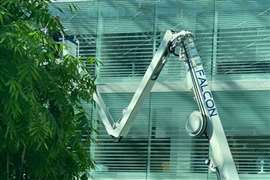Battery threat
01 May 2008
Fiec and the european power tool association (EPTA) are both supporting a revision to the Batteries Directive (Directives 75/442/EEC and 1999/31/EC), proposed by the European Commission. The proposal would put provisions in place across the EU for the collection and recycling of hazardous spent Nickel-Cadmium (NiCd) batteries. These are widely used as rechargable power sources in the cordless power tools that are used throughout the construciton industry.
Market Restriction
The European Parliament voted against the proposal at its first reading, favouring instead a marketing restriction on NiCd batteries. If Parliament's decision is upheld by the Council, it would imply that in the future, power tools would need to be driven either by other batteries or mains power. The obvious substitute battery technology is nickel metal hydride (NiMH), which is less efficient and more expensive than NiCd, while corded mains electricity is inconvenient and bears a higher risk than batteries.
Further to this, EPTA insists that a restriction on NiCd batteries is neither warranted nor justified. It says the preliminary results of the Targeted Risk Assessment Report (TRAR) on cadmium in batteries show that the risk stemming from NiCd batteries is very small. It demonstrates that an effective pan-European policy of collection and recycling of spent NiCd batteries is the best policy to ensure that the environmental risk does not become a cause for concern. The recent Opinion from the Commission's Scientific Committee on Toxicity, Ecotoxicity and the Environment, which reviewed the TRAR, confirms these findings. It describes the contribution of NiCd batteries to the overall level of cadmium in the environment as insignificant.
The EPTA also believes a restriction on NiCd batteries is not sustainable from an environmental, social and economic point of view. The Commission's Extended Impact Assessment (ExIA) showed that the most sustainable policy option is a strict policy of collection and recycling with ambitious targets. The Commission proposal, which foresees such a policy combined with a high collection target for NiCd batteries, is based on these findings and deserves to be supported.
Economic Limitations
Some of EPTA's members have equipped their tools with NiMH batteries. However, many found that NiCd batteries have distinct benefits in numerous power tool applications. Indeed, the ExIA recognises that. “NiMH batteries can be used but with severe technical and economic limitations,” it says. It concludes that substitution is not feasible for cordless power tools, “where significant negative technical impacts are expected.”
The ExIA also draws attention to the fact that replacing NiCd by NiMH in power tools has its own negative impact upon the environment. As “the life expectancy of NiMH batteries, in terms of number of cycles, is between one third and one half that of NiCd, the number of cells for disposal would double or triple.” Although MH is not classified as “hazardous”, it contains dangerous substances some of which cannot be recycled. Cadmium, however, can be completely recycled.
Replacing NiCd by the more expensive NiMH technology risks pricing power tools out of many consumers’reach, particularly lower-income groups and those in new Member States. Consumers will have to pay more for the NiMH batteries and will need to buy more of them as their life expectancy is shorter than in NiCd batteries.
For those applications where NiCd is the best battery choice, the alternative will often be the use of corded power tools. These are less safe for users both in the workplace and at home.
Black Market
The demand in both the construction industry, as well as the DIY market, for NiCd battery powered cordless products, is extremely strong. FIEC believes that should their sale be curtailed, then there is a danger that a black market will develop to the benefit of criminals. Collection and recovery activities (closed loop), which are working increasingly well today, would gradually dry up and these illegally imported articles would find their way into other waste streams. Hence the environment will not be protected but rather exposed to increased risks of pollution.
The coming weeks and months are likely to determine whether the Member States’ representatives in the Council, together with members of the European Parliament, come down in favour of a common sense solution for collection and recycling, or whether the millions of craftsmen in the industry will be confronted with the unpalatable inevitability of increased costs, reduced productivity and increased risks in terms of health and safety, in exchange for a measure that is likely to do little if anything for our environment.






